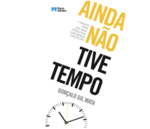Slow pace train, PORTUGAL
Reviewing and processing Collectors
Given that "no-distractions", "no-interruptions" and "high focus" are the key points here, let me repeat that your brain will only allow you to keep full focus as much as it trusts that it is OK to neglect the rest of the world for a while. If you don't get back to the items collected later, that trust is lost. The same applies, for example, to the "mindsweeps" (writing down your most pressing mental threads/concerns). Once, a participant in one of my seminars told me: "Gonçalo, the mindsweep worked perfectly on the first day, and more or less on the second day, then on the third day I just didn't feel my mind emptying that much." When I asked what she did with the mindsweep notes, she answered: "hummm... now that you mention it, I don't have a clue! I suppose they got lost in the middle of my desk chaos...". To your brain this is similar to sending people to wait at a bus stop, and then no bus ever comes! It will not work for long...
Collectors will be trusted by your own mind if and only if you make sure you really review them later. If you don't review them later, next time you put items in your collector, your mind will not trust it. It'll feel responsible to hold them for you just in case.
Inbox pressure
A very usual reason for people to feel "pressed" is that they have their "inboxes" crowded, full of items waiting for their attention. And this means that, by the time of collecting, something like "I'll get back to this later" was promised, and that promise wasn't kept. Please note that it is quite different to have some new item waiting for you to get back to it, than having an item you got back to it waiting for some execution to be accomplished. In the first case, you haven't yet clarified what the new input means in terms of your responsibility do to something, while in the second case, you have determined the action, you just haven't completed it. Typically much more pressure comes from the first situation, and that's why all the collectors in your systems must be completely emptied frequently, specially if you are feeling stressed. The famous "inbox zero bounce" paradigm is a typical implementation of this idea.
Advanced feature: double pace for processing
You might want to have two different speeds of inputs. This would mean having two piles accumulating, one which you would empty very very frequently (several times a day), and another for more slow paced items. In fact, that would represent your world much more truthfully. A more fundamentalist approach would argue that's sacrilege. The danger here, is that you will not have the discipline to empty both periodically. So the second hand pile would loose its effect, and pressure reappear. Also the first pile would then be the only pile, and you would again start having only one, unless you create a third which could further damage the credibility of the system and sense of control. After introducing the elements Action Repository and Guides, this issue will get simpler to analyse systemically. For now, suffice to say that if you understand that pressure comes from not processing your collectors, I believe you can have as many different processing speeds and piles as you like, but I strongly recommend a maximum of two, and definitely only one if you are beginning.
Next step?
Remember, when you process your collectors, you want to determine as clearly as possible what is the next action on each item, or at least the time scope for a later more pertinent reassessment, moving it to the next "phase": the action repository. This is where a crowd of actions are correctly waiting for your execution time and resources.
Now, before moving on, think of what you are using as collectors. What kind of system do you have in place that allows you to keep working while pilling interruptions and new inputs? What is your approach in terms of reviewing, processing and emptying these collectors? Do you do it repeatedly during your day? At fixed intervals? How do you relate this to your level of productivity in different days and approaches? What about your stress? Can you appreciate the connection?





Another good reason to clean out your inbox is that a lot of e-mail clients start to respond more slowly when you have thousands of messages sitting in a folder - or at least respond more slowly to actions involving that folder. Getting them out of the inbox will help speed things up.